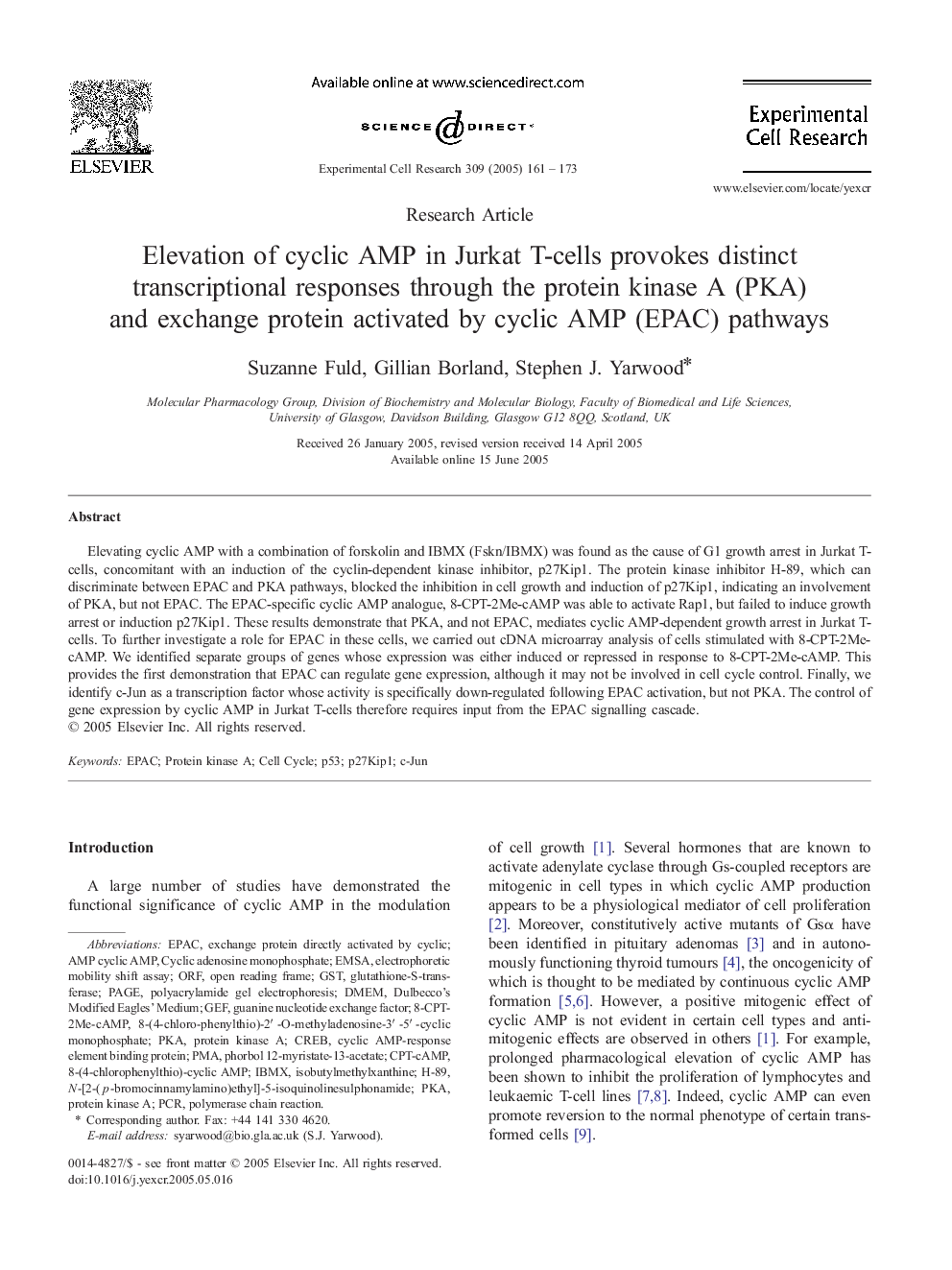| Article ID | Journal | Published Year | Pages | File Type |
|---|---|---|---|---|
| 10904848 | Experimental Cell Research | 2005 | 13 Pages |
Abstract
Elevating cyclic AMP with a combination of forskolin and IBMX (Fskn/IBMX) was found as the cause of G1 growth arrest in Jurkat T-cells, concomitant with an induction of the cyclin-dependent kinase inhibitor, p27Kip1. The protein kinase inhibitor H-89, which can discriminate between EPAC and PKA pathways, blocked the inhibition in cell growth and induction of p27Kip1, indicating an involvement of PKA, but not EPAC. The EPAC-specific cyclic AMP analogue, 8-CPT-2Me-cAMP was able to activate Rap1, but failed to induce growth arrest or induction p27Kip1. These results demonstrate that PKA, and not EPAC, mediates cyclic AMP-dependent growth arrest in Jurkat T-cells. To further investigate a role for EPAC in these cells, we carried out cDNA microarray analysis of cells stimulated with 8-CPT-2Me-cAMP. We identified separate groups of genes whose expression was either induced or repressed in response to 8-CPT-2Me-cAMP. This provides the first demonstration that EPAC can regulate gene expression, although it may not be involved in cell cycle control. Finally, we identify c-Jun as a transcription factor whose activity is specifically down-regulated following EPAC activation, but not PKA. The control of gene expression by cyclic AMP in Jurkat T-cells therefore requires input from the EPAC signalling cascade.
Keywords
pKaEMSACPT-cAMPDulbecco's modified Eagles' mediumPhorbol 12-myristate-13-acetateH-89P27kip1GEFcyclic AMP-response element binding proteinEpacCREBPAGEGSTIBMXDMEMORFp53PMACyclic adenosine monophosphateElectrophoretic mobility shift assaypolyacrylamide gel electrophoresisisobutylmethylxanthinec-Junguanine nucleotide exchange factoropen reading framepolymerase chain reactionPCRprotein kinase ACell cycleglutathione-S-transferase
Related Topics
Life Sciences
Biochemistry, Genetics and Molecular Biology
Cancer Research
Authors
Suzanne Fuld, Gillian Borland, Stephen J. Yarwood,
